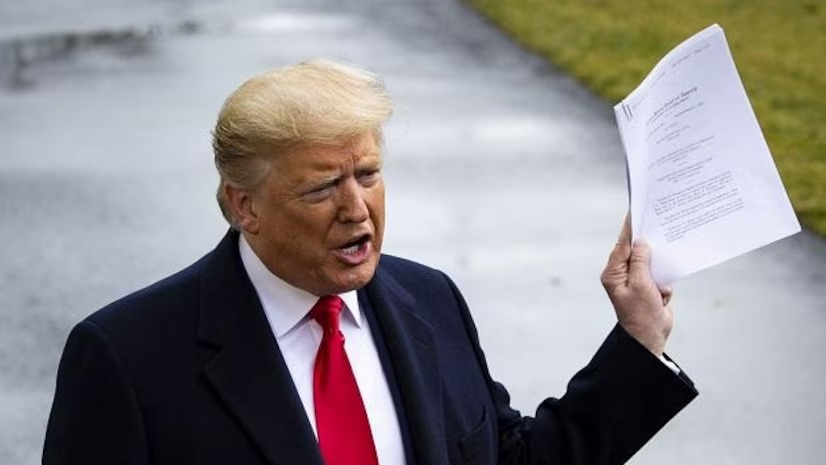Waving Classified Document
A federal judge overseeing the prosecution of former President Donald Trump on charges related to the retention of classified documents has agreed to remove a paragraph from the indictment.
This paragraph detailed an incident where Trump allegedly waved a classified document concerning a military operation at his Bedminster, New Jersey club.
Judge Aileen Cannon ruled that this paragraph should be excluded from the indictment, reasoning that Trump was not charged with a crime for the behavior it described. She argued that including this information could be unfairly prejudicial to Trump if a jury were to see it at trial.
Legal experts have noted that this decision by Judge Cannon is quite unusual. Her ruling was partially based on a federal rule that limits the use of evidence of “other crimes” to imply a defendant’s bad character.
However, this rule also permits such evidence if it demonstrates proof of motive, opportunity, intent, preparation, plan, knowledge, identity, or absence of mistake or accident.
Prosecutors contended that the paragraph should remain because it was justified under the second part of the rule.
They argued that the information about Trump showing a classified map of Afghanistan to a representative of his political action committee, who lacked the appropriate security clearance, was relevant and admissible.
The paragraph also mentioned that Trump warned the representative not to get too close to the map, emphasizing the sensitive nature of the information.
Despite the prosecutors’ arguments, Judge Cannon focused on the fact that Trump had not been charged for the specific conduct described in the paragraph.
She concluded that its inclusion could unfairly influence the jury by suggesting a pattern of behavior without any formal charges related to that particular incident.
While Judge Cannon agreed to strike the paragraph from the indictment, she denied Trump’s broader motion to have the obstruction charges against him dismissed. This aspect of her ruling maintains the integrity of the primary charges against Trump.
Legal analysts suggest that this ruling could foreshadow how Judge Cannon might handle future attempts by Trump’s legal team to restrict the evidence that prosecutors can introduce at trial.
It indicates a cautious approach to including any information that might unduly prejudice the jury without direct relevance to the specific charges Trump faces.
The broader implications of this decision could impact the strategy of both the defense and the prosecution as the case progresses.
The prosecution must carefully consider the evidence it presents, ensuring that it directly relates to the charges and avoids any appearance of prejudicial intent.
Meanwhile, Trump’s defense team might feel emboldened to file additional motions to exclude evidence they deem irrelevant or prejudicial.
As the trial approaches, the dynamics of evidence presentation will play a crucial role in shaping the proceedings and potentially the outcome of this high-profile case. The careful navigation of federal rules of evidence and judicial discretion will be essential for both sides in this legal battle.


